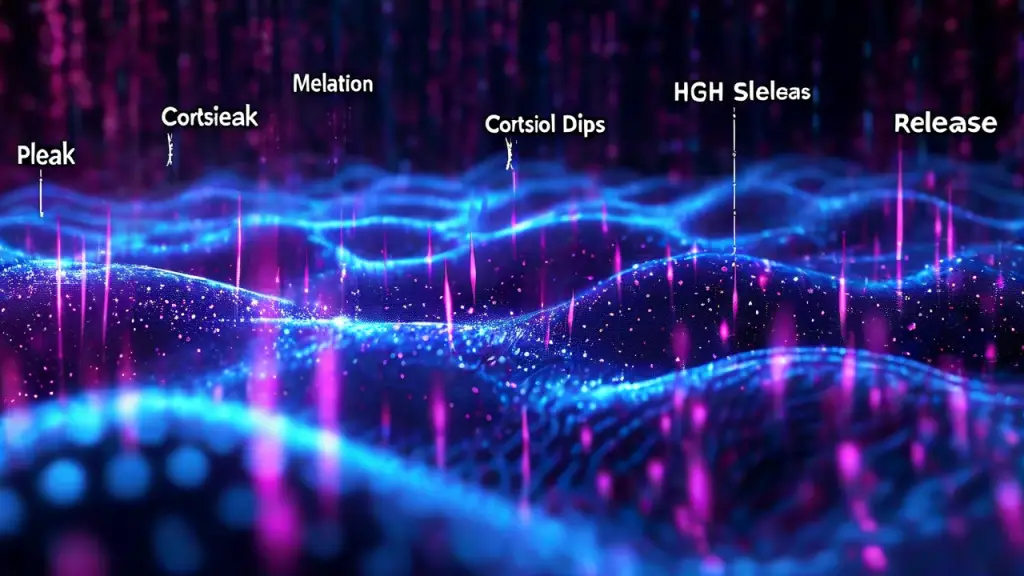
If you’re meticulously counting calories and spending hours in the gym but ignoring your sleep, you are sabotaging your fat-loss efforts. Sleep is not a passive state; it’s a critical regulatory period for the hormones that control your appetite, metabolism, and fat storage. Prioritizing sleep is not a luxury—it’s a non-negotiable pillar of metabolic health.
The Hormonal Seesaw: Ghrelin vs. Leptin
When you are sleep-deprived, a dangerous hormonal shift occurs:
Ghrelin (The “Hunger Hormon”) Skyrockets: This hormone, produced in the gut, signals hunger to your brain. Research shows that even a single night of poor sleep can lead to a significant increase in ghrelin levels.
Leptin (The “Satiety Hormone”) Plummets: Leptin is released by your fat cells and tells your brain that you have enough energy stored and can stop eating. Sleep deprivation causes leptin levels to drop, silencing the “I’m full” signal.
The result of this one-two punch? You feel hungrier, less satisfied after meals, and are driven to consume more calories, particularly from high-carbohydrate, sugary snacks.
The Cortisol and Insulin Connection
The impact doesn’t stop there. Lack of sleep is a major physical stressor, which elevates levels of the hormone **cortisol**. Chronically high cortisol promotes the storage of fat, specifically in the abdominal area (visceral fat). It also breaks down muscle tissue for energy, which lowers your metabolic rate over time.
Furthermore, sleep deprivation wreaks havoc on your **insulin** sensitivity. Insulin is the hormone that shuttles glucose from your bloodstream into your cells for energy. When you’re tired, your cells become resistant to insulin’s signal. Your pancreas then has to pump out even more insulin to compensate. High insulin levels not only encourage fat storage but also block the breakdown of stored fat, locking it in place.
The Vicious Cycle of Late-Night Cravings
This hormonal chaos creates a perfect storm for poor decision-making. The prefrontal cortex—the part of your brain responsible for willpower and impulse control—is impaired by sleep loss. Meanwhile, the brain’s reward center becomes more active in response to food cues. This combination of low willpower and high reward-seeking makes that late-night junk food almost impossible to resist.
The Expert Prescription for Sleep-Driven Fat Loss:
1. Prioritize 7-9 Hours: This is not a suggestion; it’s a requirement for hormonal balance. Consistency is key—try to go to bed and wake up at similar times, even on weekends.
2. Create a Sleep Sanctuary: Make your bedroom dark, cool (around 65°F or 18°C), and quiet. Reserve your bed for sleep and intimacy only.
3. Establish a Wind-Down Routine: An hour before bed, dim the lights, put away electronic devices (the blue light suppresses melatonin, the sleep hormone), and engage in calming activities like reading, gentle stretching, or meditation.
4. Avoid Stimulants: Caffeine has a long half-life; avoid it after 2 PM. Also, be cautious with alcohol—while it may help you fall asleep, it severely disrupts sleep quality later in the night.
By viewing sleep as a powerful metabolic regulator, you can harness its power to balance your hormones, curb cravings, and create an internal environment where fat loss becomes significantly easier.
